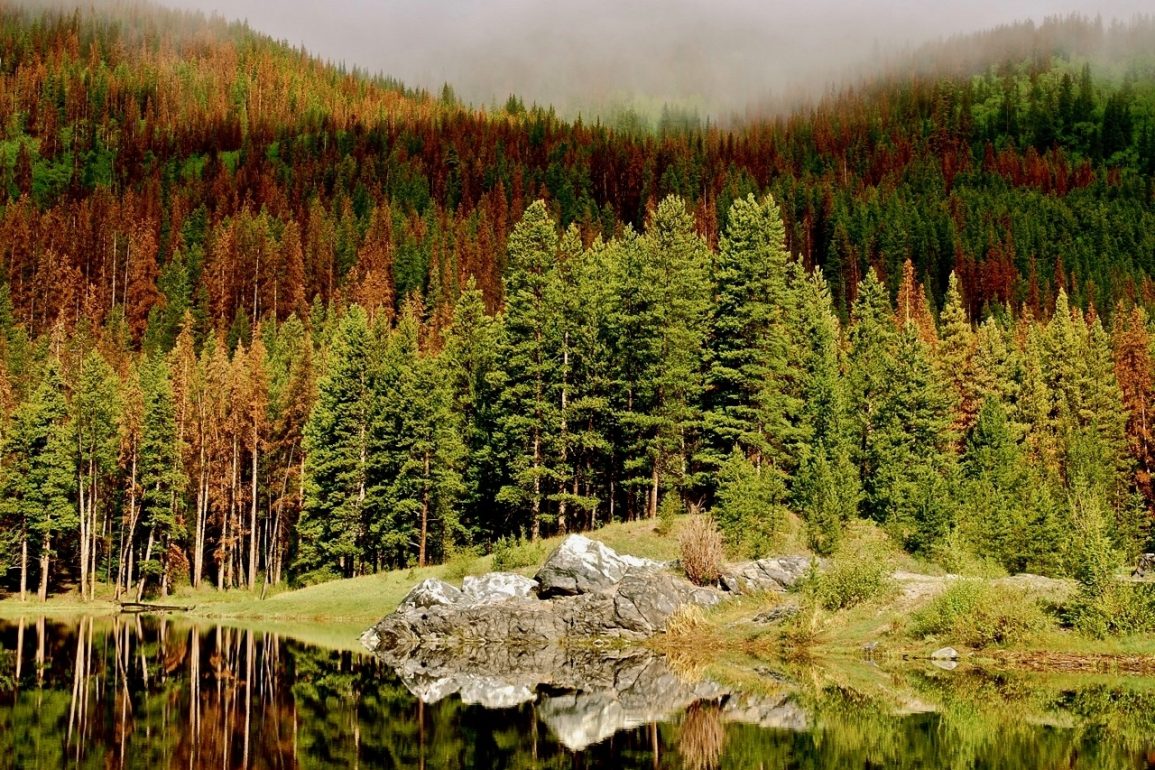Every night, billions of marine organisms, such as zooplankton and crustaceans, rise to the ocean surface to feed on algae, returning to the depths by sunrise. This daily migration plays a crucial role in removing carbon from the atmosphere by sinking waste to the ocean floor.
It is part of the Earth’s natural processes, including oceans, forests, and soils, which collectively absorb about half of human carbon emissions. However, scientists are increasingly worried that these processes are weakening as global temperatures rise.
In 2023, the Earth experienced its hottest year ever recorded, and scientists observed a temporary collapse in the amount of carbon absorbed by land. Forests, plants, and soils, which typically act as carbon sinks, absorbed almost no carbon that year.
Similar troubling signs are emerging from the oceans, where melting glaciers and ice sheets are disrupting ocean currents and slowing down carbon absorption. Changes in sunlight exposure are also affecting zooplankton behavior, potentially impacting carbon storage in the deep ocean.
Johan Rockström from the Potsdam Institute for Climate Impact Research warns that the resilience of Earth’s natural systems is faltering. Both terrestrial and marine ecosystems are showing signs of instability, threatening their ability to balance human carbon emissions. While the land carbon sink collapse of 2023 might be temporary, it highlights the fragility of these systems, which are essential in addressing the climate crisis.

Achieving net zero carbon emissions without nature’s help is nearly impossible. In the absence of large-scale carbon capture technology, forests, grasslands, peat bogs, and oceans remain the primary natural means to absorb human carbon pollution. However, rising temperatures and extreme weather are pushing these ecosystems to their limits. More than 118 countries rely on natural carbon sinks to meet their climate goals, but these systems are now at risk of collapsing.
For the last 12,000 years, Earth’s climate has maintained a fragile balance, enabling human agriculture and population growth. As human emissions increased, so did the absorption capacity of natural carbon sinks. However, rising global temperatures are beginning to disrupt this balance. For example, while the Congo basin remains a strong carbon sink, tropical rainforests like the Amazon and Southeast Asia have become net carbon emitters due to deforestation, drought, and global heating.
Soil, which is the second-largest active carbon store after oceans, is also losing its ability to absorb carbon due to rising temperatures. Scientists like Tim Lenton from Exeter University are concerned that these unexpected changes in the biosphere, such as reduced carbon absorption by boreal forests and tropical rainforests, are occurring faster than anticipated. These shifts raise doubts about the reliability of natural systems to continue functioning as carbon sinks.
Recent studies highlight that while global forests absorbed carbon steadily between 1990 and 2019, regional differences show worrying trends. Boreal forests, in particular, have seen significant declines in carbon absorption due to climate-related beetle outbreaks, fires, and logging. Combined with the weakening of the Amazon and tropical rainforests, this decline in land carbon sinks contributed to a rise in atmospheric carbon in 2023, further accelerating global warming.
The ocean, Earth’s largest carbon sink, has absorbed 90% of the heat generated by fossil fuel emissions in recent decades, contributing to rising sea temperatures. Studies show that this warming is weakening the ocean’s ability to absorb carbon. Scientists are increasingly concerned that climate models do not fully account for the rapid changes in natural carbon sinks, making predictions for future climate conditions highly uncertain.
If natural carbon sinks continue to weaken, the world will need to cut emissions even more drastically to meet climate targets. The weakening of land sinks in regions like Australia and Europe is already offsetting decarbonization efforts, making it harder for nations to reduce their overall emissions. Scientists stress that protecting existing carbon sinks, such as forests and soils, is critical, but the ultimate solution lies in reducing fossil fuel emissions across all sectors.

